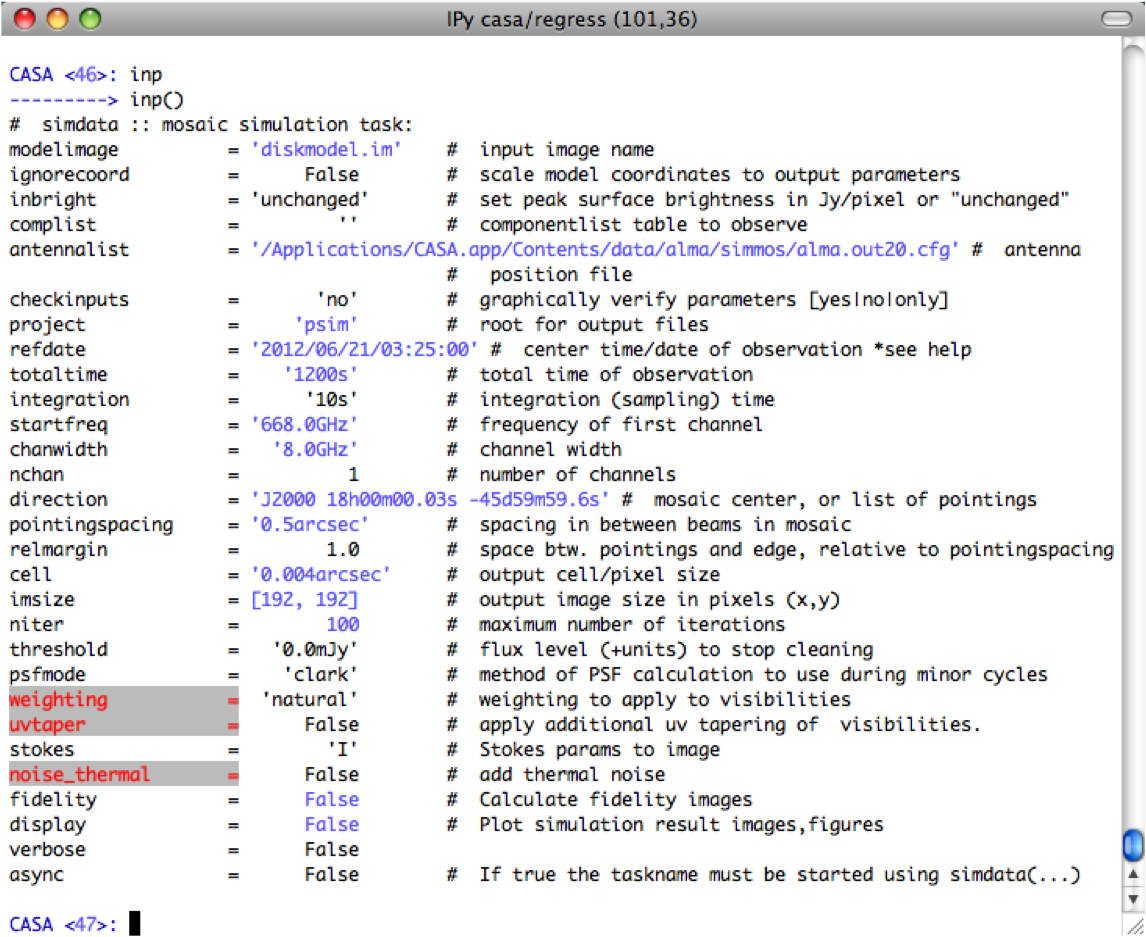Simulating Observations in CASA v3.0.1: Difference between revisions
| Line 8: | Line 8: | ||
1. [[Getting Started in CASA]] | 1. [[Getting Started in CASA]] | ||
simdata inputs look like this: | simdata inputs look like this: | ||
[[File:Inputs.png|400px]] | [[File:Inputs.png|400px]] | ||
the links below describe the various sections of inputs | the links below describe the various sections of inputs | ||
2. [[Input Model]] - Preparing a patch of sky for <tt>simdata</tt> to pseudoobserve. | 2. [[Input Model]] - Preparing a patch of sky for <tt>simdata</tt> to pseudoobserve. | ||
3. [[Antenna List]] - how to specify the positions and diameters of your antennas or stations. | 3. [[Antenna List]] - how to specify the positions and diameters of your antennas or stations. | ||
4. [[Specifying Observation]] - how to set up what/when/how you want to observe, and the output image details | 4. [[Specifying Observation]] - how to set up what/when/how you want to observe, and the output image details | ||
5. [[Corrupting Observation]] - (Optional) For added realism, corrupt your visibilities with thermal and phase noise. | 5. [[Corrupting Observation]] - (Optional) For added realism, corrupt your visibilities with thermal and phase noise. | ||
6. [[Deconvolve Image]] (Optional) Go back from the calculated visibilities to a synthesis image | 6. [[Deconvolve Image]] (Optional) Go back from the calculated visibilities to a synthesis image | ||
Revision as of 21:33, 2 December 2009
This Page Under Construction
simdata is under active development, documentation may lag reality, please email rindebet at nrao.edu with any questions - It's my job to help you use this software
Steps to simulation
simdata inputs look like this:
the links below describe the various sections of inputs
2. Input Model - Preparing a patch of sky for simdata to pseudoobserve.
3. Antenna List - how to specify the positions and diameters of your antennas or stations.
4. Specifying Observation - how to set up what/when/how you want to observe, and the output image details
5. Corrupting Observation - (Optional) For added realism, corrupt your visibilities with thermal and phase noise.
6. Deconvolve Image (Optional) Go back from the calculated visibilities to a synthesis image
